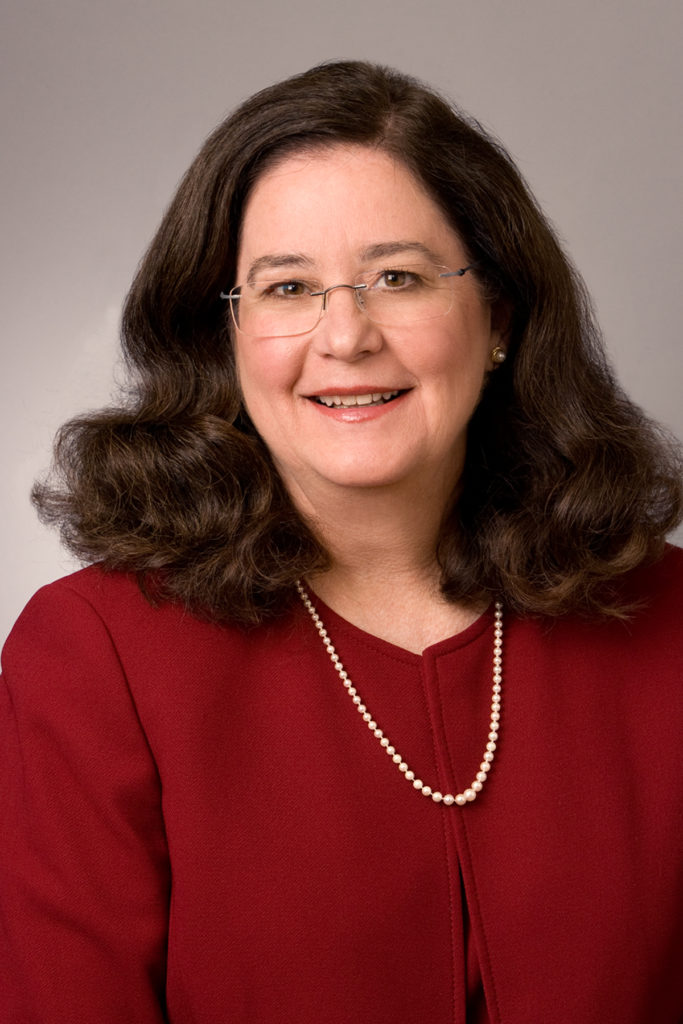AMARILLO, TX – The DME industry has been in existence since the 1970s. The industry primarily serves the elderly, meaning that DME suppliers have largely been dependent on Medicare. DME suppliers have primarily billed Medicare on an assignment basis. That is, (i) the supplier provides the product to the Medicare beneficiary, (ii) the supplier takes assignment from the beneficiary and bills Medicare, (iii) Medicare pays the supplier 80% of the allowable, and (iv) the supplier collects the other 20% from the beneficiary.
Under this “assignment” model, the successful DME supplier had to be proficient at billing and collecting from Medicare. While the assignment model will remain with us, we are witnessing a transition to a non-assignment model. Under the non-assignment model, a non-participating supplier will (i) collect money up front from the beneficiary and (ii) submit a claim to Medicare on behalf of the beneficary in order for the beneficiary to receive reimbursement from Medicare. There are several factors behind this transition:
- Subject to certain restrictions, the supplier can charge the beneficiary whatever the supplier wants.
- The supplier receives its money up-front.
- Many Baby Boomers are willing to pay cash for Cadillac products rather than be relegated to a “Cavalier” product paid for by Medicare.
Part One addressed (i) the anti-discrimination rule, (ii) participating vs. non-participating, and (iii) billing nonassigned. Part Two addresses selling products for cash at retail. Part Three addresses FAQs.
Retail
Retail and Billing Nonassigned
A supplier is engaged in “retail” when it sells an item for cash. If the patient is a Medicare beneficiary and if the item sold is covered by Medicare and if the patient pays cash to the supplier for the item, then the supplier will be deemed to have provided the item on a nonassigned basis. If the patient is a Medicare beneficiary and if the item sold is not covered by Medicare, then the transaction will be a retail cash sale. If the patient is not a Medicare beneficiary, then it does not matter either way if the item is covered by Medicare. The transaction will be a retail cash sale.
Baby Boomers
There are 78 million “Baby Boomers.” They are retiring at the rate of 10,000 per day. While the 23 million of the “Greatest Generation” expected Medicare to pay for everything, Boomers understand that they will be required to pay out-of-pocket for a portion of their health care expenses…including DME. From a Boomer’s standpoint, the most important asset he has is time. Many 70 year old Boomers will not want to wait around for Medicare approval. Rather, the Boomers will simply pay cash and move on with their lives.

Separate Legal Entity
Assume that ABC Medical Equipment, Inc. has a PTAN and is located on Main Street. Assume that John Smith is the sole stockholder of ABC. Although it is not legally required, it makes good business sense for Smith to set up a new corporation with its own Tax ID #, called “ABC Retail Sales, Inc.”
New Legal Entity
ABC Retail will not have a PTAN. ABC Retail will be located on Elm Street. Or it can be located on Main Street next to ABC Medical, with ABC Medical being in Suite A and ABC Retail being in Suite B. The bottom line is that ABC Medical and ABC Retail will be physically separated from each other. Each corporation will have its own employees, own bank account, etc. In short, each corporation will be operated as a distinct entity.
When a customer wants the Cadillac product and services, then he can pay cash for the product at ABC Retail. If a customer wants Medicare to pay for the product, then he can obtain the product from ABC Medical. ABC Retail will stock only “Cadillac” products. ABC Medical will stock a variety of products, including “Cavalier” products.
If a customer walks into ABC Retail and says that he wants Medicare to pay for the product, then ABC Retail can refer the customer to ABC Medical. Conversely, if a customer walks into ABC Medical, does not like the product selection, and is willing to pay cash for a higher end product, then ABC Medical can refer the customer to ABC Retail. Even though the two companies will have the same owner (John Smith), the companies are nevertheless separate legal entities (each with its own Tax ID #). The relationship between the two companies needs to be the same as if they were not owned by the same person. Therefore, there can be no money going back and forth between the two companies that is tied to referrals.
 It will be important for ABC Medical and ABC Retail to truly operate as separate legal entities (e.g., no commingling of money). This way, someone suing one of the companies will not be able to “pierce the corporate veil” and sue the other company as well.
It will be important for ABC Medical and ABC Retail to truly operate as separate legal entities (e.g., no commingling of money). This way, someone suing one of the companies will not be able to “pierce the corporate veil” and sue the other company as well.
ABC Retail needs to be aware of 42 U.S.C. 1395m(j)(4)(A), which states that if a supplier furnishes DME to a Medicare beneficiary, for which no payment may be made because the supplier does not have a Medicare supplier number, then any expenses incurred for the DME will be the responsibility of the supplier. This means that the ABC Retail customer will have no financial responsibility for the product, and ABC Retail will be required to refund the customer, unless before the product was furnished, (i) the customer was informed that Medicare would not reimburse the customer for the product and (ii) the customer agreed to pay cash knowing that he would not be reimbursed. In order to meet this requirement, when a customer walks into ABC Retail and if the employee suspects that the customer is covered by Medicare, then the employee may want the customer to sign an ABN.
Alternatively, ABC Retail may want to make the calculated decision that having suspected Medicare customers sign an ABN will have a “chilling” effect on the retail experience for the customer. Therefore, ABC Retail might decide not to require a suspected Medicare customer to sign an ABN; and then in those few instances when a Medicare customer subsequently complains that he was unaware that Medicare would not reimburse him, ABC Retail will reimburse the customer. From a practical standpoint, this will not occur very often. ABC Retail should also post signs that are conspicuous to the public, that say that ABC Retail is not a Medicare supplier. Now let us assume that ABC Retail desires to sell items for cash over the internet. ABC Retail’s web page should have the following in large bold type appear as soon as the customer clicks on a link to view DME, as well as immediately prior to check-out:
Notice to Medicare Beneficiaries. Medicare will pay for medical equipment and supplies only if a supplier has a Medicare supplier number. We do not have a Medicare supplier number. Medicare will not pay for any medical equipment and supplies we sell or rent to you. You will be personally and fully responsible for payment.
Reasons for a Separate Legal Entity
There are two fundamental reasons behind setting up ABC Retail as a separate legal entity:
Exposure to Audits – ABC Medical is at risk for recoupment liability in the event of an aggressive audit. If ABC Retail is only a “division” or “DBA” of ABC Medical, and if ABC Medical does get hit with a large recoupment, then it will also adversely affect the financial condition of the retail “division.” On the other hand, if ABC Retail is a separate legal entity, then generally speaking, any recoupment liability imposed against ABC Medical will not spill over to ABC Retail.
Future Sale of Retail Business – If ABC Retail is a “division” of ABC Medical, and if John Smith desires in the future to sell his retail business, but retain his Part B Business, then Smith has no choice but to have ABC Medical enter into an asset sale of its retail business. Smith will not have the option of selling his stock in ABC Medical. On the other hand, if ABC Retail is a separate legal entity, and if Smith decides in the future to sell the retail business, then he has the option of engaging in either an asset sale or a stock sale. Additionally, if ABC Retail is a separate legal entity, then it can bring in additional investors.
AAHOMECARE’S EDUCATIONAL WEBINAR
Relaxation of Requirements Under Stark and the Anti-Kickback Statute
Presented by: Jeffrey S. Baird, Esq., Brown & Fortunato
Tuesday, March 22, 2022
1:30-2:30 p.m. CENTRAL TIME
The federal Stark physician self-referral statute (“Stark”) and the federal anti-kickback statute (“AKS”) came into existence when health care was primarily operating under a fee-for-service (“FFS”) model that did not encourage provider collaboration nor tie reimbursement to achieving certain metrics. The FFS model has proven to be costly and inefficient. As a result, third party payors (including Medicare) are pushing health care delivery into a collaborative/value-based model that does (i) encourage provider collaboration and (ii) ties reimbursement, at least in part, to the achievement of certain metrics. Because of the shift of health care away from FFS towards a collaborative/value-based approach, CMS and the OIG recognized the need to modify Stark and the AKS. The goal of the modifications is to ensure that these two statutes do not unnecessarily impede the transition to collaborative/value-based care. The world of provider collaboration and value-based compensation results in referrals of patients among providers, sharing of risk by providers, and (among certain conditions) the sharing of value-based reimbursement. These activities ran up against the restrictions contained in Stark and the AKS. That is why, on November 20, 2020, CMS and the OIG issued a final rule that modified these two statutes. These modifications include (i) three new safe harbors to the AKS; (ii) modifications to existing AKS safe harbors; (iii) four new Stark exceptions; and (iv) modifications to existing Stark regulations and definitions.
By attending the webinar, you will:
- Understand the modifications to Stark and the AKS.
- Learn how to structure value-based arrangements to comply with the new Stark exceptions and AKS safe harbors.
- Understand how the modifications to the Personal Services and Management Contracts safe harbor to the AKS provide flexibility in structuring arrangements with referral sources
- Understand how the modifications to the Stark definition of commercial reasonableness expands the possibilities for joint ventures and service agreements.
Registration will soon be available for Relaxation of Requirements Under Stark and the Anti-Kickback Statute on Tuesday, March 22, 2022, 1:30-2:30 p.m. CT, with Jeffrey S. Baird, Esq. of Brown & Fortunato.
Members: $99
Non-Members: $129
Jeffrey S. Baird, JD, is chairman of the Health Care Group at Brown & Fortunato, a law firm with a national health care practice based in Texas. He represents pharmacies, infusion companies, HME companies, manufacturers, and other health care providers throughout the United States. Mr. Baird is Board Certified in Health Law by the Texas Board of Legal Specialization and can be reached at (806) 345-6320 or [email protected].
Lisa K. Smith, JD, is an attorney with the Health Care Group at Brown & Fortunato, a law firm with a national health care practice based in Texas. She represents pharmacies, infusion companies, HME companies, manufacturers, and other health care providers throughout the United States. Ms. Smith is Board Certified in Health Law by the Texas Board of Legal Specialization and can be reached at (806) 345-6370 or [email protected].

